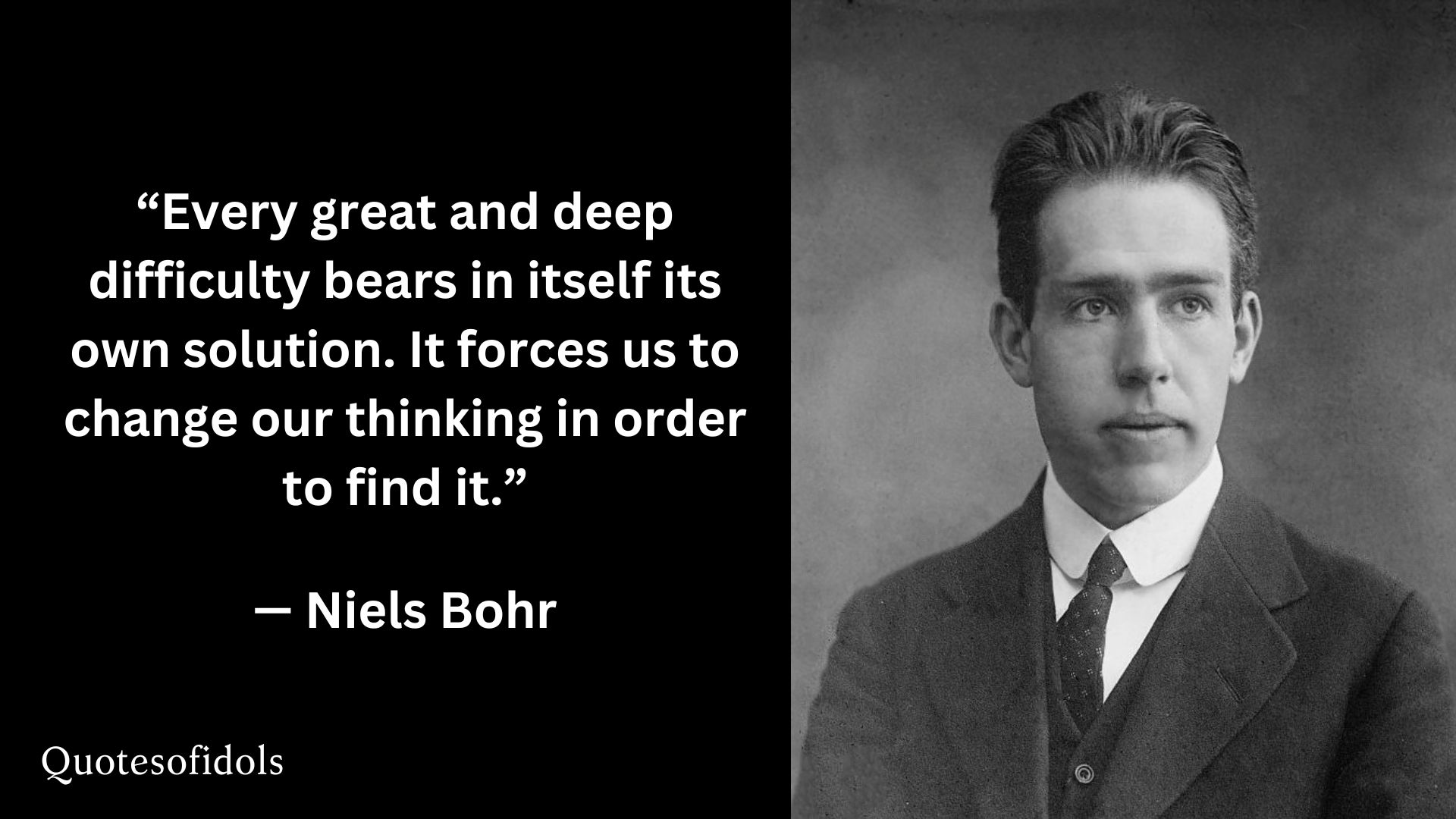All Time Famous Quotes of Pythagoras

Pythagoras, a Greek mathematician and philosopher born around 570 BC on the island of Samos, is famous for his contributions to geometry and the Pythagorean theorem. This theorem states that in a right-angled triangle, the square of the length of the hypotenuse (the side opposite the right angle) is equal to the sum of the squares of the lengths of the other two sides. Beyond mathematics, Pythagoras founded a philosophical and religious movement known as Pythagoreanism, which emphasized the importance of numbers and harmony in the universe. Pythagoras’s teachings influenced a wide range of fields, from mathematics and music to philosophy and spirituality, and his legacy continues to resonate in various disciplines to this day.
Pythagoras Quotes
1. “Number rules the universe.”
— Pythagoras
2. “Learn to be silent. Let your quiet mind listen and absorb.”
— Pythagoras
3. “The highest goal of music is to connect one’s soul to their Divine Nature, not entertainment.”
— Pythagoras
4. “As long as man continues to be the ruthless destroyer of lower living beings he will never know health or peace. For as long as men massacre animals, they will kill each other.”
— Pythagoras
5. “Man know thyself; then thou shalt know the Universe and God.”
— Pythagoras
6. “No one is free who has not obtained the empire of himself. No man is free who cannot command himself.”
— Pythagoras
7. “In anger we should refrain both from speech and action.”
— Pythagoras
8. “God built the universe on numbers.”
— Pythagoras
9. “No man is free who cannot control himself.”
— Pythagoras
10. “Be silent or let thy words be worth more than silence.”
— Pythagoras
11. “Concern should drive us into action and not into a depression. No man is free who cannot control himself.”
— Pythagoras
12. “Silence is better than unmeaning words.”
— Pythagoras
13. “It is better to be silent, than to dispute with the Ignorant.”
— Pythagoras
14. “The oldest, shortest words – ‘yes’ and ‘no’ – are those which require the most thought.”
— Pythagoras
15. “Learn silence. With the quiet serenity of a meditative mind, listen, absorb, transcribe, and transform.”
— Pythagoras
16. “Do not go to bed until you have gone over the day three times in your mind. What wrong did I do? What good did I accomplish? What did I forget to do?”
— Pythagoras
17. “There is geometry in the humming of the strings, there is music in the spacing of the spheres.”
— Pythagoras
18. “Number is the ruler of forms and ideas, and the cause of gods and demons.”
— Pythagoras
19. “The wise man should be prepared for everything that does not lie within his control.”
— Pythagoras
20. “The beginning of every government starts with the education of our youth.”
— Pythagoras
21. “If there be light, then there is darkness; if cold, heat; if height, depth; if solid, fluid; if hard, soft; if rough, smooth; if calm, tempest; if prosperity, adversity; if life, death.”
— Pythagoras
22. “Rest satisfied with doing well, and leave others to talk of you as they please.”
— Pythagoras
23. “Number is the within of all things.”
— Pythagoras
24. “A stone is frozen music.”
— Pythagoras
25. “Above the cloud with its shadow is the star with its light. Above all things reverence thyself.”
— Pythagoras
26. “Some are slaves of ambition or money, but others are interested in understanding life itself. These give themselves the name of philosophers, and they value the contemplation and discovery of nature beyond all other pursuits.”
— Pythagoras
27. “Reason is immortal, all else mortal.”
— Pythagoras
28. “If you’re asked: What is the silence? Respond: It is the first stone of the Wisdom’s temple.”
— Pythagoras
29. “Let exercise alternate with rest.”
— Pythagoras
30. “Each celestial body, in fact each and every atom, produces a particular sound on account of its movement, its rhythm or vibration. All these sounds and vibrations form a universal harmony in which each element, while having it’s own function and character, contributes to the whole.”
— Pythagoras
31. “But respect yourself most of all.”
— Pythagoras
32. “The stars in the heavens sing a music, if only we had ears to hear.”
— Pythagoras
33. “Don’t try to cover your mistakes with false words. Rather, correct your mistakes with examination.”
— Pythagoras
34. “Friendship is one soul in two bodies.”
— Pythagoras
35. “None but God is wise.”
— Pythagoras
36. “Salt is born of the purest parents: the sun and the sea.”
— Pythagoras
37. “Geometry is knowledge of the eternally existent.”
— Pythagoras
38. “Educate the children and it won’t be necessary to punish the men.”
— Pythagoras
39. “Astonishing! Everything is intelligent!”
— Pythagoras
40. “Wisdom, thoroughly learned, will never be forgotten.”
— Pythagoras
41. “Choose rather to be strong of soul than strong of body.”
— Pythagoras
42. “Choose always the way that seems the best, however rough it may be; custom will soon render it easy and agreeable.”
— Pythagoras
43. “A thought is an idea in transit.”
— Pythagoras
44. “There is a good principle which created order, light, and man, and an evil principle which created chaos, darkness, and woman.”
— Pythagoras
45. “Time is the soul of this world.”
— Pythagoras
46. “Music is the harmonization of opposites; the conciliation of warring elements.”
— Pythagoras
47. “Lust weakens both body and mind.”
— Pythagoras
48. “Truth is so great a perfection, that if God would render himself visible to men, he would choose light for his body and truth for his soul.”
— Pythagoras
49. “There is no word or action but has its echo in Eternity.”
— Pythagoras
50. “The soul of man is divided into three parts, intelligence, reason, and passion. Intelligence and passion are possessed by other animals, but reason by man alone.”
— Pythagoras
51. “As soon as you awake, in order Lay the actions to be done the coming day.”
— Pythagoras
52. “Animals share with us the privilege of having a soul.”
— Pythagoras
53. “A man is never as big as when he is on his knees to help a child.”
— Pythagoras
54. “The wind is blowing. Adore the wind.”
— Pythagoras
55. “Numbers have a way of taking a man by the hand and leading him down the path of reason.”
— Pythagoras
56. “Alas, what wickedness to swallow flesh into our own flesh, to fatten our greedy bodies by cramming in other bodies, to have one living creature fed by the death of another!”
— Pythagoras
57. “So in life, some enter the services of fame and others money, but the best choice is that of those few who spend their time in the contemplation of nature, and as lovers of wisdom.”
— Pythagoras
58. “If you have a wounded heart, touch it as little as you would an injured eye. There are only two remedies for the suffering of the soul: hope and patience.”
— Pythagoras
59. “Anger begins in folly, and ends in repentance.”
— Pythagoras
60. “Strength of mind rests in sobriety; for this keeps your reason unclouded by passion.”
— Pythagoras
61. “Speak not nor act before thou hast reflected.”
— Pythagoras
62. “Government exists only for the good of the governed.”
— Pythagoras
63. “Hate and fear breed a poison in the blood, which if continued, affects eyes, ears, nose and the organs of digestion. Therefore, it is not wise to hear and remember the unkind things others might say about you.”
— Pythagoras
64. “Do not talk a little on many subjects, but much on a few.”
— Pythagoras
65. “It is better wither to be silent, or to say things of more value than silence. Sooner throw a pearl at hazard than an idle or useless word; and do not say a little in many words, but a great deal in a few.”
— Pythagoras
66. “Allow not sleep to close your eyes before three times reflecting on Your actions of the day. What deeds Done well, what not, what left undone?”
— Pythagoras
67. “Bless us, divine number, who generated gods and men. Number contains the root and source of eternally flowing creation.”
— Pythagoras
68. “Don’t disarrange my circles!”
— Pythagoras
69. “None can be free who is a slave to, and ruled by, his passions.”
— Pythagoras
70. “You should make great things, not promising great things.”
— Pythagoras
71. “Remind yourself that all men assert that wisdom is the greatest good, but that there are few who strenuously seek out that greatest good.”
— Pythagoras
72. “Let no one persuade you by word or deed to do or say whatever is not best for you.”
— Pythagoras
73. “As soon as laws are necessary for men, they are no longer fit for freedom.”
— Pythagoras
74. “Declining from the public ways, walk in unfrequented paths.”
— Pythagoras
75. “Every man has been made by God in order to acquire knowledge and contemplate.”
— Pythagoras
76. “Assist a man in raising a burden; but do not assist him in laying it down.”
— Pythagoras
77. “Thought is an Idea in transit, which when once released, never can be lured back, nor the spoken word recalled.”
— Pythagoras
78. “Friends are as companions on a journey, who ought to aid each other to persevere in the road to a happier life.”
— Pythagoras
79. “Practice justice in word and deed, and do not get in the habit of acting thoughtlessly about anything.”
— Pythagoras
80. “We ought so to behave to one another as to avoid making enemies of our friends, and at the same time to make friends of our enemies.”
— Pythagoras
81. “Above all things, respect yourself.”
— Pythagoras
82. “Ability and necessity dwell near each other.”
— Pythagoras
83. “The octave formed a circle and gave our noble earth its form.”
— Pythagoras
84. “Wealth is a weak anchor, and glory cannot support a man; this is the law of God, that virtue only is firm, and cannot be shaken by a tempest.”
— Pythagoras
85. “Let not sleep fall upon thy eyes till thou has thrice reviewed the transactions of the past day. Where have I turned aside from rectitude? What have I been doing? What have I left undone, which I ought to have done?”
— Pythagoras
86. “The experience of life in a finite, limited body is specifically for the purpose of discovering and manifesting supernatural existence.”
— Pythagoras
87. “Above all have respect for yourself.”
— Pythagoras
88. “To cognize the Divine Essence – this is the highest purpose of soul, sent by the Creator to the Earth!”
— Pythagoras
89. “There are in woman’s eyes two sorts of tears, – the one of grief, the other of deceit.”
— Pythagoras
90. “Write in the sand the flaws of your friend.”
— Pythagoras
91. “It is difficult to walk at one and the same time many paths of life.”
— Pythagoras
92. “Practice restraint over the following: appetite, first, as well as sleep, lust, and anger.”
— Pythagoras
93. “Respect gods before demigods, heroes before men, and first among men your parents; but respect yourself most of all.”
— Pythagoras
94. “He buries gold who hides the truth.”
— Pythagoras
95. “Don’t eat your heart.”
— Pythagoras
96. “Do not despise anyone: an atom shadowing.”
— Pythagoras
97. “We come from God. As the tree from the root and the stream from the spring; that’s why we should always be in contact with Him, as the trunk from the root. Because the stream dries up when it is separated from the spring and the tree dies when is uprooted.”
— Pythagoras
98. “Having departed from your house, turn not back; for the furies will be your attendants.”
— Pythagoras
99. “Govern your tongue before all other things, following the gods.”
— Pythagoras
100. “It is required to find the infinitely big inside what’s infinitely small to feel the presence of God.”
— Pythagoras
101. “It is only necessary to make war with five things; with the maladies of the body, the ignorances of the mind, with the passions of the body, with the seditions of the city and the discords of families.”
— Pythagoras
102. “When the wise man opens his mouth, the beauties of his soul present themselves to the view, like the statues in a temple.”
— Pythagoras
103. “Instruct thyself for time and patience favor all.”
— Pythagoras
104. “Do not even think of doing what ought not to be done.”
— Pythagoras
105. “Despise all those things which when liberated from the body you will not want; invoke the Gods to become your helpers.”
— Pythagoras
106. “I would have to say the probability of us dying seems extremely high.”
— Pythagoras
107. “Meditate upon my counsels; love them; follow them; To the divine virtues will they know how to lead thee. I swear it by the One who in our hearts engraved The sacred Tetrad, symbol immense and pure, Source of Nature and model of the Gods.”
— Pythagoras
108. “A blow from your friend is better than a kiss from your enemy.”
— Pythagoras
109. “Love that shines from within cannot be darkened by obstacles of the world of consequences!”
— Pythagoras
110. “Power is the near neighbour of necessity.”
— Pythagoras
111. “Without Justice, no realm may prosper.”
— Pythagoras
112. “The earth affords a lavish supply of richess of innocent foods, and offers you banquets that involve no bloodshed or slaughter; only beasts satisfy their hunger with flesh, and not even all of those, because horses, cattle, and sheep live on grass.”
— Pythagoras
113. “As the sea-crab swimmeth always against the stream, so doth wit always against wisdom.”
— Pythagoras
114. “Thou shalt likewise know that according to Law, the nature of this universe is in all things a like.”
— Pythagoras
115. “Step not beyond the beam of the balance.”
— Pythagoras
116. “He is not rich, that enjoyeth not his own goods.”
— Pythagoras
117. “A good Soul hath neither too great joy, nor too great sorrow: for it rejoiceth in goodness; and it sorroweth in wickedness. By the means whereof, when it beholdeth all things, and seeth the good and bad so mingled together, it can neither rejoice greatly; nor be grieved with over much sorrow.”
— Pythagoras
118. “In this theater of man’s life, it is reserved only for God and angels to be lookers-on.”
— Pythagoras
119. “Consider before acting, to avoid foolishness: It is the worthless man who speaks and acts thoughtlessly.”
— Pythagoras
120. “We ought not to quit our post without the permission of Him who commands; the post of man is life.”
— Pythagoras
121. “You should help a man to take up a burden, but you should not help him put it back down.”
— Pythagoras
122. “Truth is to be sought with a mind purified from the passions of the body. Having overcome evil things, thou shalt experience the union of the union mortal divinity with the mortal man.”
— Pythagoras
123. “Abstain from animals.”
— Pythagoras
124. “Those alone are dear to Divinity who are hostile to injustice.”
— Pythagoras
125. “He who knoweth not what he ought to know, is a brute beast among men; he that knoweth no more than he hath need of, is a man among brute beasts; and he that knoweth all that may be known, is as a God among men.”
— Pythagoras
126. “Disbelieve nothing wonderful concerning the gods, nor concerning divine dogmas.”
— Pythagoras
127. “Dear youths, I warn you cherish peace divine, And in your hearts lay deep these words of mine.”
— Pythagoras
128. “Do not spend in excess like one who is careless of what is good, nor be miserly; the mean is best in every case.”
— Pythagoras
129. “There are men and gods, and beings like Pythagoras.”
— Pythagoras
130. “Wind indeed increases fire, but custom love.”
— Pythagoras
131. “Envy has been, is, and shall be, the destruction of many. What is there, that Envy hath not defamed, or Malice left undefiled? Truly, no good thing.”
— Pythagoras
132. “It is requisite to defend those who are unjustly accused of having acted injuriously, but to praise those who excel in a certain good.”
— Pythagoras
133. “You will know that wretched men are the cause of their own suffering, who neither see nor hear the good that is near them, and few are the ones who know how to secure release from their troubles.”
— Pythagoras
134. “So tutor youth that the sins of age be not imputed to thee.”
— Pythagoras
135. “When going to the temple to adore Divinity neither say nor do any thing in the interim pertaining to the common affairs of life.”
— Pythagoras
136. “Let a man use great reverence and manners to himself.”
— Pythagoras
137. “One must choose in all things a mean just and good.”
— Pythagoras
138. “Begin thus from the first act, and proceed; and, in conclusion, at the ill which thou hast done, be troubled, and rejoice for the good.”
— Pythagoras
139. “Many words befall men, mean and noble alike; do not be astonished by them, nor allow yourself to be constrained.”
— Pythagoras
140. “Neither will the horse be adjudged to be generous, that is sumptuously adorned, but the horse whose nature is illustrious; nor is the man worthy who possesses great wealth, but he whose soul is generous.”
— Pythagoras
141. “He lived far from the gods, but in his mind he was at home with them.”
— Pythagoras
142. “A stranger, if just, is not only to be preferred before a countryman, but a kinsman.”
— Pythagoras
143. “A fool is known by his speech, and a wise man by silence.”
— Pythagoras
144. “Meaningful silence is better than meaningless words.”
— Pythagoras
145. “Do not take roads traveled by the public.”
— Pythagoras









